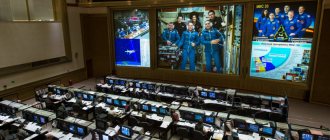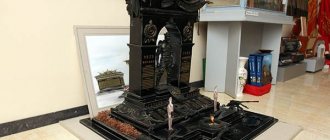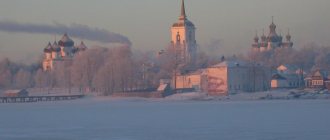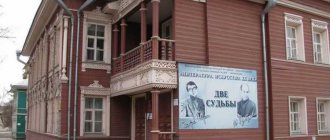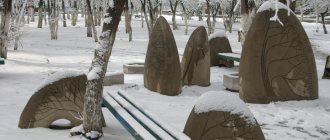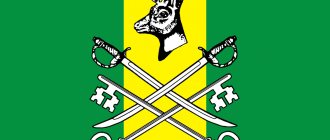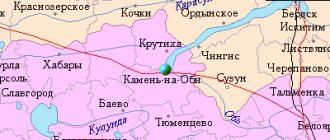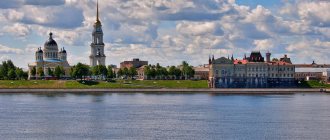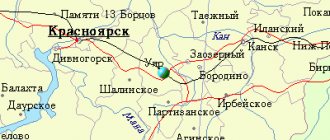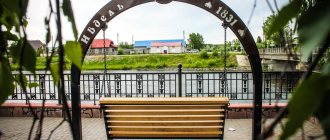City of Manturovo
The village of Manturovo 1933
City of Manturovo. The city is named after the village of Manturovo, located near the Unzha River. The first mention of the village is found in the watch book of the city of Unzha in 1617. Boyar Yu.G. Lovchikov and clerk Marte-myanov in 1617, by order of the tsar, carried out an additional census (watch) of the Unzha siege, which then included Manturovo. This census was caused by the fact that the Galich district suffered greatly from the Polish interventionists, and the government needed to know the damage caused.
The sentinel book records: “The Verkhovskaya volost, and in it the village of Manturovo and in it the peasants’ courtyard of Ivashka Popov, the courtyard of Gavrilka Ivanov, the courtyard of Deniska Artemiev, and seven hectares of arable land (3.5 hectares - D.B.) and three heaps of hay.”
The Nikolsky churchyard, which stood next to the village of Manturovo, is described in more detail, on the site of which the village of Mokrovskoye (Nikola on Mokrom) later arose, which also later became part of the city: “The graveyard is in the Verkhovskaya volost and on the graveyard there is a temple in the name of the Wonderworker Nicholas and another warm temple in the name of Elijah the Prophet is made of wooden dumplings, and in the churches there are images and candles and books and vestments and bells and all the buildings of the world, and in the graveyard there is a mallow yard and a sexton’s yard, and in it the poor live and are fed from the Church of God.”
The book also rewrites the villages neighboring the churchyard: Gradylevo, in which there were 4 courtyards, Skorodumovo, where the yard of the priest of the St. Nicholas Church Posnik Ivanov stood, the village of Rychkovo, in which there were 2 courtyards, the village of Efimovo - 2 courtyards. Some of these villages were later lost or became part of the city of Manturova.
Steamship of the Unzhenskaya Flotilla "Manturovo"
A wide strip along the Unzha River from the city of Kologriv to the city of Unzhi stretched the Verkhovskaya volost, the lands of which at the end of the 16th century belonged to the brother of Anastasia Romanovna, the first wife of Ivan the Terrible.
When in Russia the struggle of the boyar parties of the Romanovs with the Godunovs ended in the victory of the Godunovs and B.F. Godunov came to power, the Romanovs and their relatives were imprisoned in monasteries and their estates were taken away from them. With the election of Mikhail Fedorovich Romanov to the throne, the lands were returned to the Romanovs and the Verkhovskaya volost was given to the Tsar's uncle Ivan Nikitich Romanov. In the census book of 1646 it is written: “The sovereign granted the boyar Ivan Nikitich Romanov the Verkhovskaya volost to the patrimony, and in the patrimony the village of Nikolskoye, and Gradylevo also in it the Church of the Wonderworker Nicholas and in the chapel of the Prophet Elijah, and near the church in the yard of the priest Posnik and the cell Mallow and in the village there is a yard of clerks.”
At that time, there were already 11 peasant households in Manturovo, in which the Opolevs, Gavrilovs, Popovs, Ponomarevs, Topolevs, Kozovlevs and others lived. From I.N. Romanov, Manturovo and the entire Romanov estate passed to his son Nikita Ivanovich, and after his death it was transferred to the Palace Department and the villages in it were distributed to service people as a salary for their service. In 1659, land surveyors Koptev and Kushnikov came to Verkhovskaya volost to distribute villages and demarcate them.
In the book “Distribution of Land” it is written: “According to the sovereign and the tsar and the Grand Duke Alexei Mikhailovich, I came to the Galich district in the Verkhovskaya palace volost, they painted the villages of the village of Nikolskoye and Gradylevo, and in it the church of the Wonderworker Nicholas and in the same village the courtyard of the sovereigns who lived clerks and in the yard there is a mansion - a janitor with a room and above the cage opposite the hall there is a canopy between them and a back room and two huts for people, a bathhouse and two cellars and above the cellars there are three granaries, a cookhouse and two cattle yards and now, by decree of the great sovereign, that yard is denied to the landowner Prince Osip Nikiforovich - son of Vyazemsky." At the same time, the village of Manturovo was given to princes P.Yu. Ukhtomsky and M.N. Vyazemsky, the village of Veshnyakovo to M.N. Vyazemsky and boyar A.A. Zyuzin, and the village of Rychkovo to Prince P.Yu. Ukhtomsky.
St. Nicholas Church in Manturovo
The impetus for the development of Manturov was the railway laid through it and the sawmills and plywood factories built here.
The sawmill of Tsodikov and Khitrovin was built in 1908, employing 30 workers.
The Berezhkovsky sawmill (Dandre and Korba) was built in 1911, the plywood sawmill of Prince Dolgorukov in 1912, where 100 people worked. In addition, the Krutikova steam flour mill operated near the village of Manturovo. Russia, Kostroma region, Manturovo on the map
MANTUROVO
MANTUROVO, a city in Russia, in the east. parts of the Kostroma region, the center of the Manturovo district. Us. 17.8 thousand people (2010). Located on the right bank of the river. Unzha. Railway station.
It was first mentioned in 1617 as a village in the Watch Book of the city of Unzha. In 1620–54, M., as part of the Verkhovskaya volost, belonged to I. N. Romanov (uncle of Tsar Mikhail Fedorovich). After the peasant reform of 1861, the rapid development of entrepreneurship and trade began in Moscow; Since 1870, two fairs have been held here annually. In 1872, a pier was built near the village (near the village of Mokrovskoye), and from the 2nd half of the 1870s. The Unzhensky shipping company, specializing in the transportation of wood, was active. In 1906, traffic was opened along the railway that ran near the village. line Vologda - Vyatka (built Manturovo station), which contributed to the construction of sawmills in Moscow and the surrounding area: in the village. Efimovo - plant Moscow. merchant N.M. Kleev (1912), Belgian plant. firms "Dandre and Carbo", near M. - plant of the book. P. D. Dolgorukova (both in 1912–1913), near the village. Berezhki - plant gr. E.I. Krasinsky (1913). Around these enterprises, workers’ settlements developed, connected by a network of streets (the villages of Mokrovskoye and Gradulevo, and the station of Manturovo were also included in this structure); basic adm. and societies. institutions were concentrated in M. In the 2nd half. 1920s ex. plant book Dolgorukov was converted into a large plywood mill (production of plywood began in 1915; now the city-forming enterprise of M.), around which at the turn of the 1920s and 30s. the village began to take shape. Yurovsky (working village since 1935). M. is the regional center of Kostroma province. (1928–29), Nizhny Novgorod (from 1932 Gorky) region (1929–36), Gorky (1936–44) and Kostroma (from 1944) regions. Since 1929 it has been a workers' settlement. The city of M. was formed in 1958 with the merger of the working-class settlements of Manturovo and Yurovsky. In 1962, Gradulevo became part of the city, and in 1966, the villages of Rechkovo, Veshnyakovo and Zharikhino.
Manturovo. Bank building. 1990s Photo by P. S. Pavlinov
Archit. the dominant feature of the city is c. St. Nicholas in the former With. Mokrovskoe (1836; the refectory, bell tower and the completion of the temple were restored in 2000–10, architect L. S. Vasiliev), a temple covered with 5 lightweight domes with late Baroque decor. Among other architects. monuments: 2-storey wooden. merchant houses (D.V. and V.D. Krutikov, house with a shop of A.F. Bechin), a stone house with a shop on the 1st floor of the merchant V.Ya. Popov (all - late 19th - early 20th centuries. ), wood railway buildings station (including water tower, ca. 1905), former school. village Berezhki (1915–16), 2-story apartment buildings in the village. Yurovsky (1934–35 and mid-1950s), a lumber mill club in the neoclassical style (1954–57). In the 1990s. built: hotel, local history buildings. museum, bank with Art Nouveau elements.
The leading enterprise is a plywood mill (since 2007, part of the Sveza company). Tractor repair plant (mainly repair of logging equipment). Production of lumber, honey products. destination (bandages, cotton wool, etc.). Cheese factory, mineral bottling enterprises. water (Kologriv-M, etc.).
Near M., on the right bank of the river. Unzha, the following churches have been preserved: St. George's (1813; with an 8-sided main volume in plan and baroque decorative motifs) in the former. village Georgievsk (near the village of Shulevo), 2-storey Voskresenskaya in the style of classicism in the village. Ugory (1817), Resurrection in the Russian-Byzantine style in the village. Karkovo (1861) and in the village. Gusevo (1857–68); park of the estate of D. A. and M. P. Apukhtin “Otrada” in the village. Davydovo (2nd quarter of the 19th century).
Manturovo
(Kostroma region)
OKATO code:
34414
Founded:
1617
Urban settlement since:
1929
City since:
1958 City of regional subordination
Center:
Manturovo district
Telephone code (reference phone)
| 49446***** | 33-2-22 |
Deviation from Moscow time, hours:
0
Geographic latitude:
58°20′
Geographic longitude:
44°46′
Altitude above sea level, meters:
120 Sunrise and sunset times in the city of Manturovo
Denis Manturov
Denis Valentinovich Manturov - Minister of Industry and Trade of the Russian Federation (since 2012), is an active state adviser of the Russian Federation, 1st class. Denis Manturov is the head of the Department of Social Technologies, Faculty of Sociology, Moscow State University. Also Manturov Denis Manturov is one of the leaders in the Russian government in terms of income.
Childhood and education of Denis Manturov
Denis Manturov was born on February 23, 1969 in Murmansk.
The father of the future minister, Valentin Ivanovich Manturov , graduated from a naval school, was an active Komsomol activist, and then made a successful career. Manturov Sr. worked as deputy chairman of the city executive committee and graduated from the Academy of Foreign Trade.
Mother - Tamara Fedorovna - was a housewife.
When Denis was 7 years old, his father Valentin Manturov was sent to work in India; you can learn about this from the biography of the Minister of Industry and Trade on the Find Out Everything website.
The family left for Bombay, where Valentin Ivanovich Manturov began working as director of the Soviet cultural center. Denis studied at the school at the embassy. In the 80s, Manturov Sr. headed the USSR mission to the UN, and at the same time he headed the cultural center in Colombo.
After graduating from school, Denis Manturov entered Moscow State University, from which he graduated in 1994, receiving the profession of sociologist. His father continued his career overseas; Valentin Manturov worked in the USA, heading the Russian Federation Committee on Tourism. And Manturov continued his education in graduate school at Moscow State University. Defended his PhD thesis in 1997. Later, Denis Valentinovich’s biography included doctoral studies at the Moscow Aviation Institute (2002).
Career of Denis Manturov
After university, Denis Manturov got married, and marriage played a role in the development of his career. The wife of the future minister, Natalya, also grew up in Bombay, and her father, Evgeny Kisel , worked in this Asian country in an airline representative office. Then Denis Manturov’s father-in-law went into business - in partnership with Aeroflot he created. He appointed Manturov as his deputy. The company was engaged in the export of components for Mi-8 helicopters to India.
Denis Manturov himself also went into business during this period of his career. He founded his own company, which became a Beeline dealer.
The biography of Denis Manturov on the website of the Ministry of Industry and Trade says that the minister began his working career in 1998 as Deputy General Director of OJSC Ulan-Ude Aviation Plant. At the age of 28, Denis Valentinovich became the main shareholder of this plant. Manturov and his father-in-law organized the mass sale of helicopters to China, Sri Lanka, and India.
Manturov quickly moved up the career ladder. In 2000, Denis’s biography included the prestigious position of commercial director of the capital’s Mikhail Mil , one of the most reputable manufacturers of helicopter equipment.
In 2001, Denis Valentinovich Manturov took the position of deputy chairman of the Gosinkor unitary enterprise, which owns several defense companies. In 2003, Denis Manturov became the head of Oboronprom, created with the aim of organizing a holding company for the construction of aircraft.
Denis Manturov joined the management of a number of development companies, including OKB Sukhoi, Kamov, and Kurgamashzavod.
2006 was marked by a new diploma - Denis Manturov received a legal education at the Civil Service Academy. Further, successfully climbing the career ladder, in 2007 he became Deputy Minister of Industry and Energy. In 2008, Denis Manturov was appointed to the same position in the Ministry of Industry and Trade. And then he entered the presidential personnel reserve.
Since 2011, Denis Manturov has taught at the Moscow Aviation Institute.
In 2012, Vladimir Putin (then Prime Minister) appointed Denis Valentinovich head of the Ministry of Industry and Trade.
On May 21, 2012, Denis Manturov was confirmed as minister. Since November 2012, he has also been the chairman of the supervisory board of the Rostec state corporation.
Denis Manturov managed to retain the position of minister in the new government after the 2021 elections.
Denis Manturov has a number of awards. In 2007, he was awarded the medal of the Order of Merit for the Fatherland, II degree, in 2008 he was awarded the Order of Friendship, and in 2009 he was awarded the Order of Honor. In 2010, Denis Manturov was awarded a Certificate of Honor from the Government of the Russian Federation. In 2013, Manturov was awarded the Order of Merit for the Fatherland, IV degree.
Denis Manturov as minister
In 2014, the Minister of Industry and Trade of the Russian Federation Denis Manturov said in Bahrain at a meeting with representatives of the government and business circles of this country that “illegal sanctions from Western countries create additional opportunities.”
“As they say, a holy place is never empty. Therefore, we invite you and are ready to discuss those areas that have traditionally existed in our relations with Western countries. Therefore, we will now actively develop dialogue with the countries of the Middle East, Southeast Asia, and Latin America, and develop contacts that will not be subject to sanctions and political aspects. The economy should be independent of political aspects,” Manturov said.
In November 2014, Denis Manturov said that the weakening of the ruble should not lead to an increase in food prices. According to the official, our food importers are actively working on the transition to making payments in national currencies with other countries and abandoning the use of the dollar and euro. Therefore, our consumers should not sound the alarm.
“We proceed from the fact that the weakening of the ruble should not affect a sharp increase in prices; our companies quite pragmatically proceed from the fact that it is better to pay in local currencies, which actually hedges the risks from using the euro-dollar exchange rate difference,” Manturov said, surprising thereby many Russians.
In the fall of 2021, the Minister of Industry and Trade of the Russian Federation Denis Manturov spoke about a preliminary agreement on the production of Russian helicopters in Mexico.
The Ministry of Industry and Trade of the Russian Federation advocates replacing plastic bags with paper ones in the country's stores. “We are currently discussing with retailers the issue of expanding the use of paper packaging instead of traditional bags,” the head of the Ministry of Industry and Trade Denis Manturov was quoted in the news.
In recent years, Denis Manturov has often commented on the “Cortege” project. It was reported that more than ten vehicles of the “Cortege” project will be transferred to the Federal Security Service by the beginning of March. In total, the Ministry of Industry and Trade of the Russian Federation expects to supply FSO with up to 70 vehicles in 2018. The cost of the “Cortege” project car in the minimum configuration will be about 6 million rubles.
“I can say that we are accurately delivering on time, which was agreed upon with the FSO in terms of the delivery of those sets of cars that were previously agreed upon. As for the immediate moment when our president drives this car, it is not up to us to make the appropriate decision,” said the head of the Ministry of Industry and Trade Denis Manturov in an interview with the Rossiya 24 TV channel.
Personal life of Denis Manturov
Denis Manturov got married almost immediately after receiving his university diploma. He has known his wife since childhood. They went to embassy school together in Bombay.
Natalya Evgenievna Manturova (nee Kisel) is a doctor, a specialist in the field of cosmetics, and a plastic surgeon. Natalya Manturova registered her first private clinic “Lancet” back in 1999. Then she expanded her business (center of aesthetic medicine “Russian Beauty”, “Delight M and B”).
The Manturov couple have two children - son Evgeniy (born 1998) and daughter Lionella (born 1995). Lionela Manturova graduated from school in Italy, then followed in her father’s footsteps and received an education at the Faculty of Sociology of Moscow State University.
The minister’s wife enjoys spending time not only on professional, but also on social activities. Natalya Manturova is the head of the ethics committee of the Society of Plastic Surgeons of Russia, she heads a specialized department at one of the faculties of the National Research Medical University named after N. Pirogov .
Income of Denis Manturov
According to the income statement, Denis Manturov earned about 100 million rubles in 2012, he owns a 9-room apartment with an area of 480 m², a guest house, two Porsche cars, as well as lease rights for 99 years on four land plots. His wife Natalya owns the Lancet plastic and endoscopic surgery clinic, a house with an area of 800 m², a plot of land, and earned 2.7 million rubles in 2012.
Manturov’s income is one of the highest among representatives of the federal government. In 2014, he earned 113.5 million rubles and took 5th place (after Khloponin , Abyzov , Trutnev and Prikhodko ) in the income ranking of government members. According to the submitted declaration, he also owned a residential building of 814 square meters, a 9-room apartment measuring 481 square meters. m, two cars, five plots of land.
According to the Forbes rating, Manturov’s income according to the declaration for 2015 is 120.42 million rubles. Denis Manturov took 72nd place among civil servants. In 2021, its income increased to 213.566,747 million rubles. The wife earned 4,379,540.35 rubles.
It should be noted that by 2021, the Manturov fleet has been updated. The Porsche 911 Turbo Coupe, Porsche Cayenne Turbo and Bentley Continental GT have disappeared from it; the foreign auto world now represents only the Land Rover Range Rover in the minister’s garage. But the Manturovs have 5 domestic cars: Moskvich 412, VAZ 2103, VAZ Lada Vesta, GAZ 21 and Moskvich 408.
After joining the civil service, Denis Manturov transferred part of his assets to his wife, in particular, the Primorye sanatorium in Gelendzhik, where she sends her patients for a period of rehabilitation, according to the biography of the Minister of Industry and Trade on the Find Out Everything website.
Denis Manturov entered the top 10 ministers by income in 2021.
